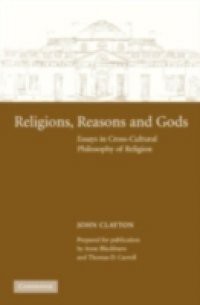Traditional theistic proofs are often understood as evidence intended to compel belief in a divinity. John Clayton explores the surprisingly varied applications of such proofs in the work of philosophers and theologians from several periods and traditions, thinkers as varied as Ramanuja, al-Ghazali, Anselm, and Jefferson. He shows how the gradual disembedding of theistic proofs from their diverse and local religious contexts is concurrent with the development of natural theologies and atheism as social and intellectual options in early modern Europe and America. Clayton offers a fresh reading of the early modern history of philosophy and theology, arguing that awareness of such history, and the local uses of theistic argument, offer important ways of managing religious and cultural difference in the public sphere. He argues for the importance of historically grounded philosophy of religion to the field of religious studies and public debate on religious pluralism and cultural diversity.

